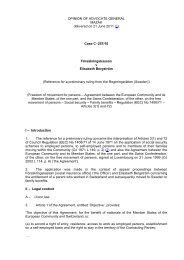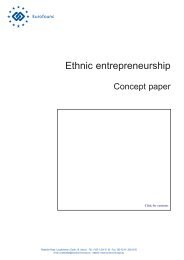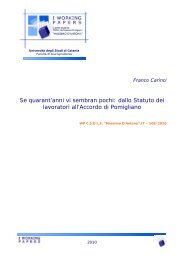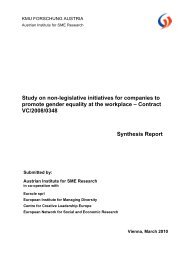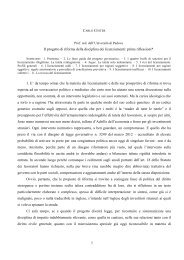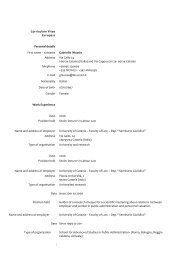Full text - European Trade Union Institute (ETUI)
Full text - European Trade Union Institute (ETUI)
Full text - European Trade Union Institute (ETUI)
You also want an ePaper? Increase the reach of your titles
YUMPU automatically turns print PDFs into web optimized ePapers that Google loves.
Isabelle Schömann and Coralie Guedes<br />
by all national and foreign undertakings in the same region or sector (ETUC<br />
2012). 8 As a consequence, host Member States can apply higher or different<br />
standards by law, relying on Article 3.1 but it must be justified on a case by<br />
case basis (according to CJEU C-319/06 Commission vs Luxembourg). In the<br />
same vein, trade unions in the host Member State can take action to demand<br />
better standards by way of collective agreements, in particular to prevent ‘social<br />
dumping’ and promote fair competition between local and foreign service<br />
providers, without infringing Article 56 of the new Treaty on the Functioning<br />
of the EU, TFEU (49 EC Treaty), that is, without creating obstacles to the free<br />
movement of services, as long as it is justified by reasons of overriding public<br />
interest (see CJEU Rüffert C-319/06 and Laval C-341/06). According to the<br />
Treaty, however, directives set out minimum requirements for the protection<br />
of workers, in other words, the core of rights that must be applied, given the<br />
possibility for Member States to provide the workers concerned with more favourable<br />
conditions based on domestic legal or collectively agreed standards.<br />
In particular, member states in their role of public authorities contracting out<br />
public work should be allowed to demand observance of locally applicable collective<br />
wages and working conditions by any company, local or foreign, tendering<br />
for the contract.<br />
In December 1996, the <strong>European</strong> Parliament and the Council adopted Directive<br />
96/71/EC concerning the posting of workers within the framework of<br />
the provision of services, usually called the ‘Posting of Workers Directive’.<br />
The aim of the Posting of Workers Directive is to guarantee that the rights<br />
and working conditions of a posted worker are protected throughout the <strong>European</strong><br />
<strong>Union</strong>. In this respect, it also intends to prevent ‘social dumping’ in<br />
situations where foreign service providers weaken local service providers by<br />
providing lower labour standards. For this purpose, the Posting of Workers<br />
Directive ensures all posted workers core protections, whatever the law applicable<br />
to the employment relationship, when they perform their job in another<br />
member state within the framework of the provision of services. The core protections<br />
cover various areas of labour law, such as maximum work periods<br />
and minimum rest periods, minimum paid annual holidays, or health, safety<br />
and hygiene at work. The basic assumption is therefore that the law applicable<br />
to an employment contract, which is normally country of origin law,<br />
does not change during the posting because of the temporary character of the<br />
posting. Specific mechanisms are therefore necessary to ensure that the same<br />
rules apply to foreign and host country employers/companies, at least when<br />
it comes to key issues that have a strong influence on the competitive (dis)<br />
advantages of companies and the protection of workers (wages and working<br />
conditions). Second, it is necessary to ensure that this situation is not abused<br />
or manipulated to avoid or evade host country rules.<br />
The Posting Directive intends therefore to regulate whether and under what<br />
conditions the host country rules regarding wages and working conditions<br />
(laid down in law or collective agreement) overrule the possible law and other<br />
8. See: http://www.etuc.org/a/7044<br />
56 WP 2012.13





